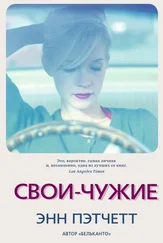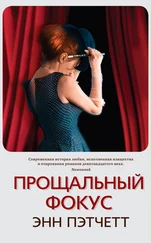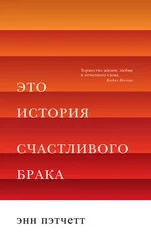“You didn’t pick up anybody on the train, did you?” Maeve asked when I came to them, an old joke that made me think of how she used to pick me up and shake me.
“A very uneventful ride.” I kissed them both.
When we got to the parking lot, my mother told me she was driving. Once Maeve was fully recovered, she had launched our mother on a plan of self-improvement. In the past six months our mother had had cataract surgery on both of her eyes, three basal cell carcinomas removed (one from her left temple, one from the top of her left ear, one on her right nostril), and a significant amount of dentistry. Housekeeping, Maeve called it. I paid the bills. Maeve fought me at first but I told her if she wanted me to do better, she had to let me do better. I didn’t mention any of this to Celeste.
“You have no idea what it’s like to see again,” our mother said. “That thing—” she pointed to a telephone pole. “Six months ago I would have told you that was a tree.”
“It was a tree at some point,” Maeve said, getting into the back seat of her own station wagon.
Our mother put on a giant pair of Jackie O sunglasses her ophthalmologist had given her as a gift. “Dr. Shivitz told me the reason my cataracts were so bad is because I never wore sunglasses. I’ve lived in a lot of sunny places.”
Maeve opened her purse and began rooting around for her sunglasses while our mother left the parking lot, working her way through the maze of Philadelphia. I hadn’t felt particularly confident about getting in the car with her, but once she found her place in the traffic she stayed up to speed. She and Maeve were still going on about Pissarro, his paintings of Normandy and Paris, the way he understood the people and the light. They spoke as if he were a friend they both admired.
“We should go to Paris,” Maeve said to our mother. Maeve, who never wanted to go anywhere.
Our mother agreed. “Now’s the time,” she said.
I don’t think I ever took the train to Philadelphia without thinking of chemistry, and how Morey Able told me that without a solid grasp of chapter 1, chapter 2 would be impossible. Maeve had done that work when our mother came back, gone all the way to the beginning until she was certain she understood what had happened. But for me, the discipline had been the exact opposite: when I could look at our mother only as the person she was now—the old lady driving the Volvo—I thought she was fine. She was energetic, helpful, she had a good laugh. She seemed like somebody’s mother, and for the most part I was able to block the fact that she was mine. Or, to put it another way, I thought of her as Maeve’s mother. That worked for all of us.
I paid little attention to their talk of Impressionism and kept a close eye on the cars around us, noting their speed in relation to our speed, calculating their distance. We were well out of the city and there hadn’t been so much as a near miss. I felt grateful that my children showed no interest in learning to drive. One of the many advantages of living in New York was that the streets were full of taxis waiting to take them places. “You’re a good driver,” I said to my mother finally.
“I’ve always driven,” she said, turning her ridiculous sunglasses in my direction. “Even these past few years when I couldn’t see a thing. I drove in New York and Los Angeles for heaven’s sake. I drove in Bombay. I drove in Mexico City. I really think that was the worst.” She put on the turn indicator and changed lanes without self-consciousness. “Your father taught me to drive, you know.”
“Now there’s something we all have in common,” Maeve said.
He had given me a few lessons in the church parking lot when I was fifteen. It had been one of the many means we had of prolonging our Sundays out of the house. “He taught you to drive in Brooklyn?”
“Oh, heavens, no. No one had a car in Brooklyn back then. I learned to drive when we moved to the country. Your father came home one night and said, ‘Elna, I bought you a car. Come on and I’ll show you how it works.’ He had me go up and down the driveway a few times and then he told me to take it out on the street. Two days later I had a driver’s license. Nothing was crowded back then. You didn’t have to worry so much that you were going to hit somebody.”
Yet another thing I’d discovered about our mother: she liked to talk. “Still,” I said, “two days is fast.”
“That was the way your father did things.”
“That was the way he did things,” Maeve said.
“I was never as grateful for anything as I was that car. I didn’t even feel bad about the money it cost. It was a Studebaker Champion. The good old Champion. Back then, all of this was farmland. Right over there”—she pointed to a long block of shop fronts and apartments—“that was a field of cows. I’d never lived in the country before and the quiet made me so nervous. You’d started school,” she said to Maeve, “and all I did was sit there in that huge house all day waiting for you to come home. If it wasn’t for Fluffy and Sandy I would have gone out of my mind, though to tell you the truth they drove me out of my mind a little bit, too. Don’t tell them I said that.”
“Of course not,” Maeve said, leaning forward so that her head was more or less between the two front seats.
“I loved them so much, but they wouldn’t let me do anything . They were always running just in front of me so that they could wash something or pick something up. I hired Jocelyn because I was so afraid Sandy wouldn’t stay without her sister, and then Jocelyn started doing all the cooking. The one thing I was good at was cooking and they wouldn’t even let me make dinner. But once I got the Champion, things really did get better for a while. After I took you to school in the mornings, I’d drive into Philadelphia and see our friends on the base, or I’d drive to Immaculate Conception and make myself useful until school let out. That’s when I got to be friends with the Mercy nuns. They were great fun. We started a clothing drive and the nuns and I would drive around picking up things people didn’t need, then I would take the clothes home and get everything washed and mended and drive it all back to the church. There was a lot of clothing in the house when we first moved in, things that had been the VanHoebeeks’. A lot of it was hopeless but there were other things Sandy and I fixed up. We made all the coats work—cashmere, furs. You wouldn’t have believed what we found.”
I thought of Fluffy’s diamond.
“I always wondered what happened to the clothes,” Maeve said.
“Your father used to say I lived in that car,” my mother said, undeterred from her original point. “He used to let me drive him around to collect the rent. You know he never liked to drive. I’d pack up the back seat with jars of stew. So many of those people had nothing. One day there was a family we called on, five little children in two rooms, the mother was crying. I said to her, ‘You don’t ever have to pay us rent! You should see the house we live in.’ And that was that.” My mother laughed. “He was so mad he never took me with him again. Then every week he’d come home and say people were asking where I was. He said they wanted their stew.”
In my memory, my father loved to drive. Not that it mattered.
Our mother came to a stop sign, looked in one direction and then the other. “Look at this street, all full up. There used to be three houses on this street.”
Two blocks later she turned left, and then turned left again. I had paid so much attention to how she was driving, I hadn’t noticed where she was driving. We were in Elkins Park. She was heading towards VanHoebeek Street.
“Have you come back here since you’ve been home?” I asked, but really, I meant the question for Maeve. Do you bring her back here? We had avoided the Dutch House for years and I could feel the strangeness of being in the neighborhood again, as if we’d been caught someplace we weren’t supposed to be.
Читать дальше
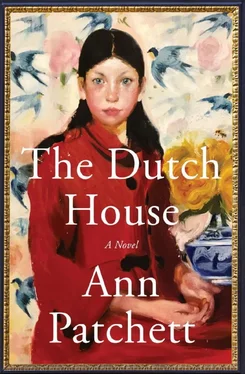
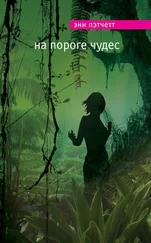

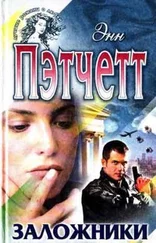
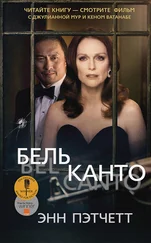
![Энн Пэтчетт - Прощальный фокус [litres]](/books/402782/enn-petchett-prochalnyj-fokus-litres-thumb.webp)
